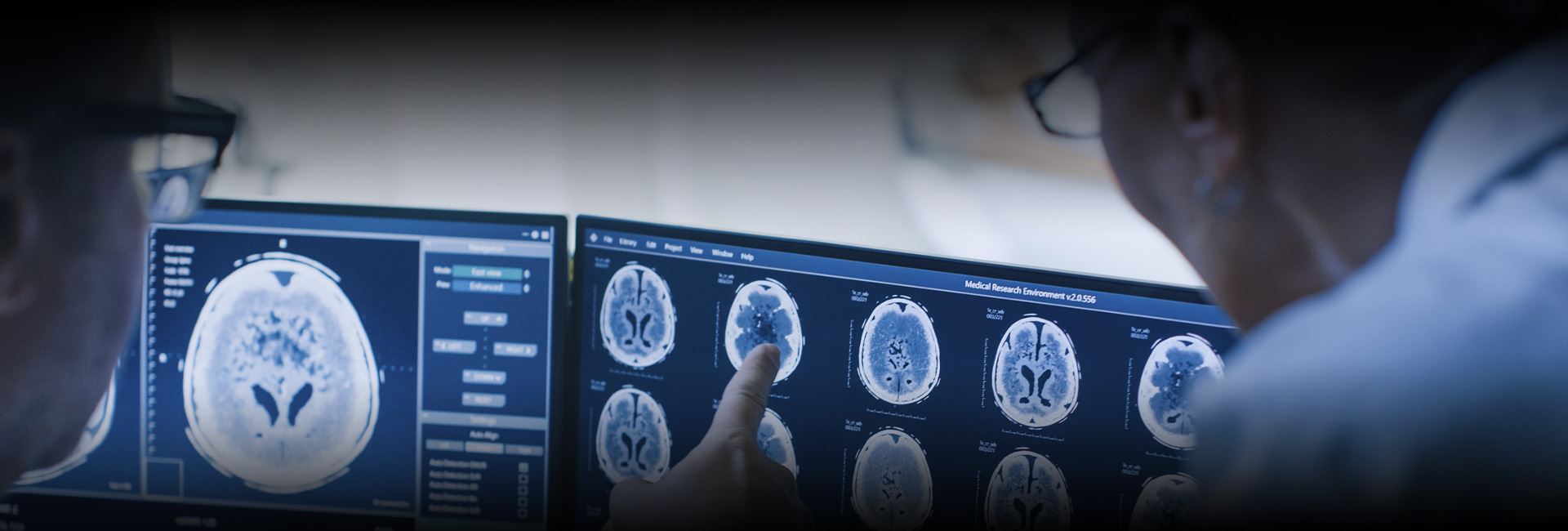
Getting You the Benefits You Need to Recover
Vermont Brain Injury Lawyer
Helping Victims Pursue Workers’ Comp Head Injury Settlements in Vermont
A common question people often ask is "What causes a traumatic brain injury?" A traumatic brain injury is trauma that causes a disruption of normal brain function that produces any alteration in mental state, such as being dazed, disoriented or confused.
Have you or a loved one suffered a brain injury in an accident at work? I can help you obtain a brain injury workers' comp settlement. Contact us today to discuss your situation and determine the next steps.
Symptoms of TBI
These are injuries that often are “invisible“ to persons other than the injured worker, because coworkers and supervisors and workers’ compensation insurers often mistakenly will say “you don’t look injured,“ and yet the injured worker is suffering any, if not all, of the following:
- headaches
- nausea
- sensitivity to light
- mood changes
- fatigue
- changes in sense of taste
- changes in sense of smell
- ringing in the ears
- vision changes
- irritability
- anger
- difficulty concentrating and completing tasks
- difficulty sleeping
Diagnosing Brain Injuries
Injuries to the head and injuries to the brain often are misunderstood because there’s not necessarily a broken bone, there’s not necessarily a scar of the skin or even a laceration.
Sometimes physicians will mistakenly say “Time will heal,“ when actually time is wasting opportunity to get appropriate treatment for a traumatic brain injury, such as a referral to a head injury specialist, examination by a neurologist, a neuropsychologist, an eye specialist, or a sleep specialist.
How Do I Afford Treatment?
The treatment for a TBI can be expensive, and insurers are tempted not to pay the expense of testing and treatments but try to deny it.
Often insurers deny benefits for brain injuries at work by developing a strategy of “blame the victim,” in other words a strategy that suggests that the injured worker‘s fatigue is just a lack of motivation, that the injured worker’s headaches are common to everyone, and that the injured worker’s memory problems are “subjective” or “exaggerated” or “not proven.”
This makes it harder for the injured worker to get to the right specialists who know how to diagnose and how to treat head injuries and traumatic brain injuries quickly and effectively.
Specialists can make it clear to insurers that the worker’s head injury is real, even though the brain injury is hidden inside the skull. Specialists know brain injuries can be proven by means of neuropsychological testing, neurological evaluation, eye exams and exercises, hearing testing, sleep study, and other tests including cognitive functional capacity evaluations.
Frequently Asked Questions (FAQ)
1. What is a traumatic brain injury (TBI)?
A traumatic brain injury (TBI) is any disruption in normal brain function caused by a trauma, such as a blow to the head. Symptoms can include headaches, confusion, mood changes, and more.
2. What are common causes of TBIs in the workplace?
Common causes include falls, being struck by objects, motor vehicle accidents, and other incidents where the head experiences significant impact.
3. What symptoms should I look for if I suspect a TBI?
Symptoms of a TBI can vary but may include headaches, nausea, sensitivity to light, mood swings, fatigue, changes in sensory perception (taste, smell), ringing in the ears, and difficulty concentrating.
4. How is a TBI diagnosed?
Diagnosis may involve a combination of imaging tests (like MRIs or CT scans), neuropsychological evaluations, and assessments by specialists such as neurologists and neuropsychologists.
5. How can I afford treatment for a TBI?
Treatment can be costly, but if your injury occurred at work, you may be entitled to workers' compensation benefits. It's crucial to have legal representation to ensure you receive the necessary coverage for medical expenses.
6. What if my workers' compensation claim is denied?
If your claim is denied, it’s important to consult a lawyer who specializes in workers’ compensation and brain injuries. They can help you appeal the decision and gather the necessary evidence to support your claim.
7. Can I pursue a claim if my injury seems "invisible"?
Yes, even if your injury is not visibly apparent, you can still pursue a claim. Many brain injuries are considered "invisible" but are very real and can be validated through specialist evaluations and testing.
8. How can a lawyer help me with my TBI claim?
A lawyer can provide guidance on the legal process, help gather necessary documentation and evidence, negotiate with insurance companies, and represent you in court if needed to ensure you receive fair compensation.
9. What types of compensation can I expect for a TBI?
You may be entitled to compensation for medical expenses, lost wages, rehabilitation costs, and pain and suffering resulting from the injury.
10. How do I get started with my claim?
Contact our office to schedule a consultation. We can assess your situation, discuss your options, and guide you through the claims process to help you secure the compensation you deserve.
If you need assistance with pursuing a traumatic brain injury workers’ comp settlement, contact our office today to schedule a consultation. I represent victims throughout Vermont and can provide valuable guidance during this difficult time.
Clients Share Their Experience
-
Chip took a great deal of time getting to know the circumstances of my injury and how it has affected my life.
Laura Samson -
I HIGHLY RECOMMEND HIM
Niame Diallo -
If your looking for a lawyer that truly has your best interest at heart he's the guy look no further.
Vanessa
Contact Us Now For Help
Our office is a place where workers can go after experiencing an on-the job injury.

